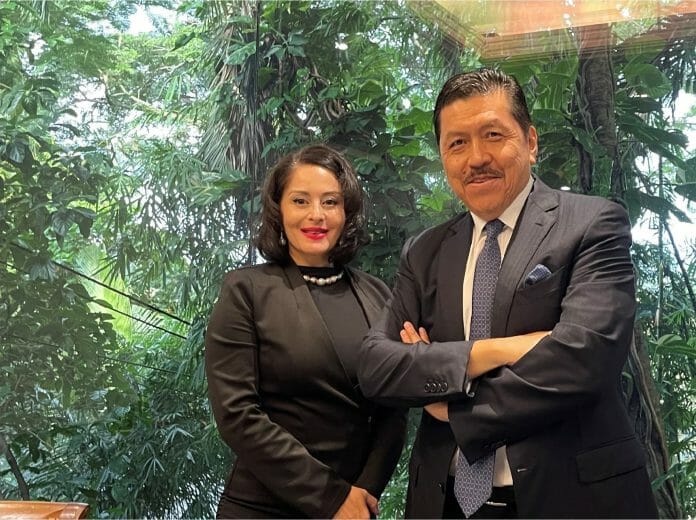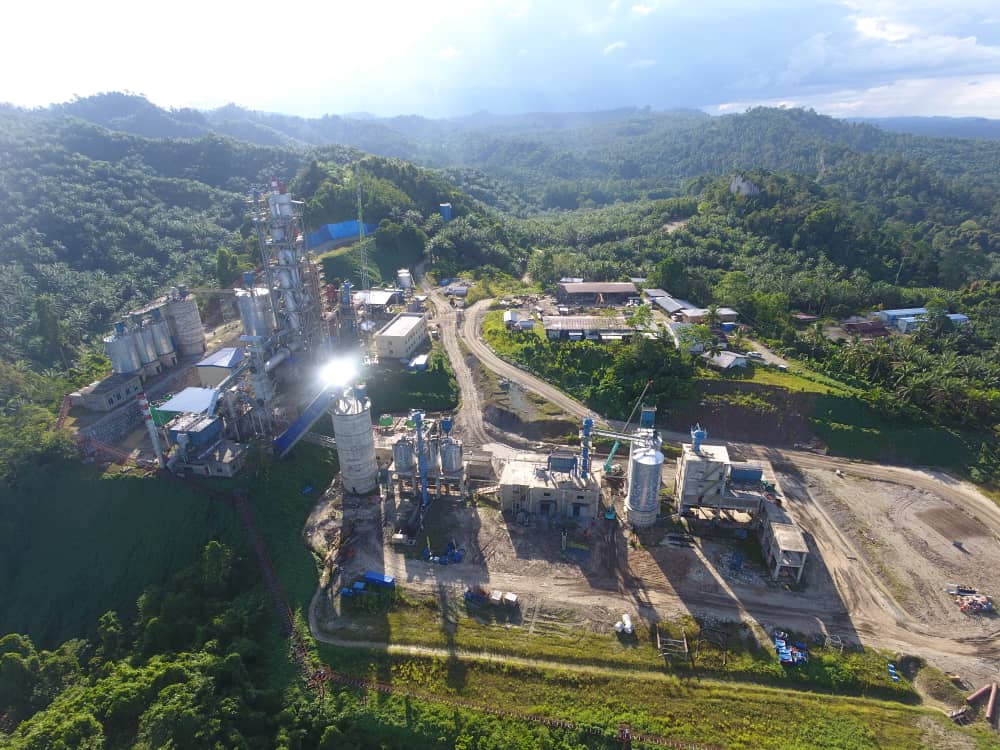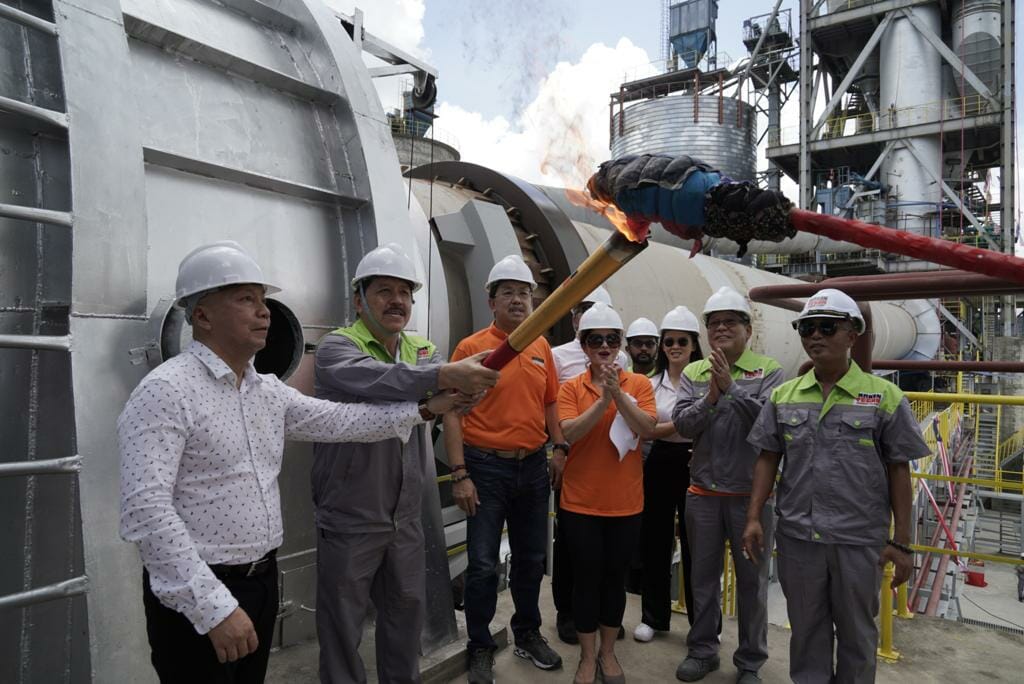Borneo Oil Berhad (BornOil) recently announced that it has emerged as the majority shareholder of Sabah’s sole integrated clinker and cement manufacturing plant (“ILPP”). It’s a massive development as it would result in the BornOil Group diversifying its principal activities to include the manufacturing and trading of clinker, cement and related products, thereby opening a new and potentially lucrative business stream.
This development is an extremely positive one for BornOil as the outlook for Sabah’s clinker and cement industry is favourable given the high cement prices in Sabah and the ILPP’s proximity to the Brunei-Indonesia-Malaysia-Philippines East ASEAN Growth Area (BIMP-EAGA).
According to estimates, Sabah has an annual demand of between 1.2 million to 1.4 million metric tons of cement per year. These numbers do not include the future development projects planned on the East Coast of Sabah, and the demand in the BIMP-EAGA region with close proximity to the east coast of Sabah.
There are also strong synergies between BornOil’s existing limestone quarrying business operations and the ILPP, among which include the ILPP being situated adjacent to BornOil’s limestone quarry lands in Lahad Datu.
BornOil is today the largest private owner of limestone reserves of cement grade quality in Sabah and has heavily invested in the resource. This development has enabled the BornOil group to move downstream its quarrying resources to further boost the BornOil Group’s bottom line.
In an exclusive interview with Business Today, BornOil executive directors Datuk Joseph Ambrose Lee and Georgianne Suzanne Lingam talks us through the huge potential ahead:
Business Today: Can you talk us through how this development came about?
Late last month, BornOil entered into a conditional share sale agreement with Global 2332 Ltd for the acquisition of a 30.73% equity interest in Makin Teguh Sdn Bhd (MTSB) for a purchase consideration of RM100 million cash. We had previously held a 29.27% equity interest in MTSB. With this latest development, MTSB will become a 60%-owned subsidiary of BornOil – resulting in the BornOil Group diversifying its principal activities to include the manufacturing and trading of clinker, cement and related products.
MTSB and BORNOIL own the only source of private operating limestone resources in Sabah.
The situation in Sabah is unique and unlike that in West Malaysia. West Malaysia has 10 Integrated Clinker and Cement plants plus many cement grinding plants. There is no shortage of cement in West Malaysia.
Sarawak has one integrated clinker and cement plant and two cement grinding plants with an annual capacity of 2.6 Million MT sufficient to cater for the internal demand in Sarawak and future growth.
On the other hand, Sabah is the ONLY state in Malaysia with NO integrated production of clinker and cement. The one and only existing GLC supplier of cement operates a cement grinding plant which utilises 100% imported clinker and shortfall is supplemented by imported cement.
This results in cement in Sabah being heavily exposed to currency risk, high logistics costs (particularly to Sabah) and risk of shipping interruptions. This is the reason why cement prices in Sabah are the highest in Malaysia with prices reaching RM460 per MT in the East Coast of Sabah (RM23 per 50kg bag). Furthermore, this situation often causes shortage of cement in Sabah. This is widely reported in the news.
The current demand for cement in Sabah is between 1.1 Million MT- 1.4 Million MT per year. This is still the lowest consumption rate for cement per capita in Malaysia. This is due to the fact that Sabah is vastly underdeveloped in terms of insfrastructure. In comparison to Sarawak, in landsize and population, Sarawak has a demand of around 1.1 million to 1.8 million MT cement. This is due to the rapid infrasrructure projects such as numerous dams and other ongoing infrastructure projects like Pan Borneo Highway etc.
Cement prices in Sarawak rose 49% from RM198 per MT pre-Covid to RM295.50 per MT, and is expected to rise to RM370 per MT based on rising fuel and labour prices.
Similarly In Sabah, the prices have also risen sharply from RM297.2 in 2020 to RM342.20 per MT in Kota Kinabalu in November 2021. In 2022, the sharp increase in fuel coupled with shipping issues caused further increase up to RM460 per MT in the East Coast with some towns experiencing prices as high as RM480 per MT due to transport costs.
In comparison, current prices in West Malaysia as at November 2022 are RM340 per MT bulk and RM17/ 50 kg bag.
MTSB’s Plant is situated in Lahad Datu (EAST COAST of Sabah) and currently produces 230,000 MT per year. There is big room for growth. Currently the internal demand in Sabah is the primary target market as there is an urgent demand.
The Lahad Datu plant is close to the BIMP-EAGA region with a population of approximately 23 million. Places like Sourthen Philipines are very close to Lahad Datu and cement is sold there for almost RM700 – 800 per MT. The East Coast of Sabah also is very close in proximity to Tarakan and NUNUKan which are entry points into Kalimantan Region. The impending move of the Indonesian Capital to Kalimantan will open up a new market which can only be served by those who are competitive in logistics by virtue of proximity.
These areas will serve as the secondary target market for MTSB’s Plant to serve this markets.
MTSB’s first phase expansion will increase production to 1.5 Million MT/ year to fulfill the urgent demand in Sabah and serve the nearby areas. This is targeted to commence in 2024.
The investment by BornOil into MTSB has a tremendous potential for growth due the following factors:
i. Monopoly business
ii. Growth potential
iii. BornOil and MTSB are in control of the ONLY developed and operating limestone quarry in Sabah.
iv. BornOil has access to existing limestone waste stocks readily available to be used a feedstock for MT’s Plant.
v. This investment by BornOil will enable BornOil to realise the full profit potential of its limestone resources through this downstream venture to value add to the limestone resource.
vi. Ready market for cement in Sabah with the highest prices in Malaysia
vii. MTSB’s Plant will be the ONLY integarted clinker and cement plant in Sabah
viii. Close Proximity to Southern Philpines.
Business Today: Can you elaborate on the processes involved with the cement plant – and the raw materials involved?
Our plant utilises mostly local materials which are readily available in Sabah except for gypsum which is imported from Thailand. This is not material as gypsum only constitutes 5% of the total raw materials used.
The plant utilises the latest environmentally friendly technology whereby heat produced from the kiln is recovered to produce 30% of total fuel consumption. In addition to this, the plant is designed to utilise multi-fuels which include palm oil biomass and recovered inustrial fuel.
The BornOil group is exploring other fuels such as biofuel and palm oil derived bio coal utilising the readily avaialble palm biomass available in the East Coast of Sabah. This will reduce the dependence of fossil fuel while ensuring that production of cement is done in the most environmentally frendly manner.
Business Today: How much would the demand in Sabah and Sarawak be, and would the plant be able to fulfil such demand?
The consumption rate for cement in Malaysia is 600 kg per capita (national average) which is higher than that of developed economies such as the United States and Australia.
Sarawak’s population as at 2022 is 2.45 million and cement consumption is 1,800,000 MT per year, therefore consumption of cement per capita in Sarawak is 730 kg per capita which is higher than the rate in West Malaysia due to the vast land area and infrastructure requirements coupled with ongoing mega projects like dams and roads.
Sabah has a population of 3.40 million (2022) and cement consumption of 1.1 million MT with a per capita consumption of cement of 323 kg, which is very low compared to the National Average.
Sabah is behind other states in terms of infrastructure. Therefore there is a great upside for Sabah in terms of development requirements.











